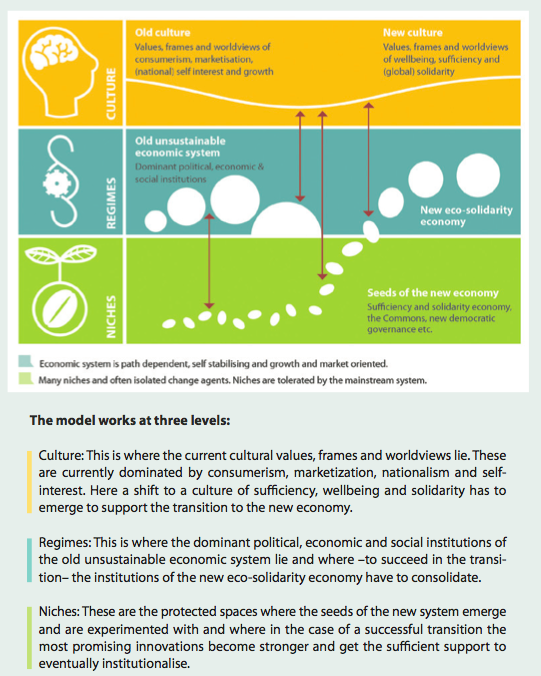
It’s good to see people who are engaged in social change activities making use of models from complexity. Case in point: the 2013 “Civil Society in Transition” (pdf) report from Smart CSOs, a group that nurtures systems thinking and promotes cultural transformation among a network of mostly European civil society organizations. Their core model (cc-enabled) is above.
Civil society work is hampered, they write, by a set of “old cherished stories [that] are broken.” Controversial stuff, and worth a look. Among their “broken” stories:
- Policy advocacy and lobbyism are the best way to be influential.
- We need to raise more funds and lobby for more aid budgets for the global south to develop and eradicate poverty.
- We are the experts on our issue, so we should focus on concrete feasible proposals to improve the issues.
- The world is divided between the good and the bad. We are on the good side and to achieve social change we have to fight the bad.
The focus is instead, and as depicted above, on systemic shifts to: a cultural narrative of wellbeing, sufficiency, and solidarity; the institutions that would support such a new culture; and niche-scale initiatives that form the seeds of such a transition.
An academic introduction to this type of approach is in the 2009 paper by Jan Rotmans and Derk Loorbach, “Complexity and Transition Management.”

